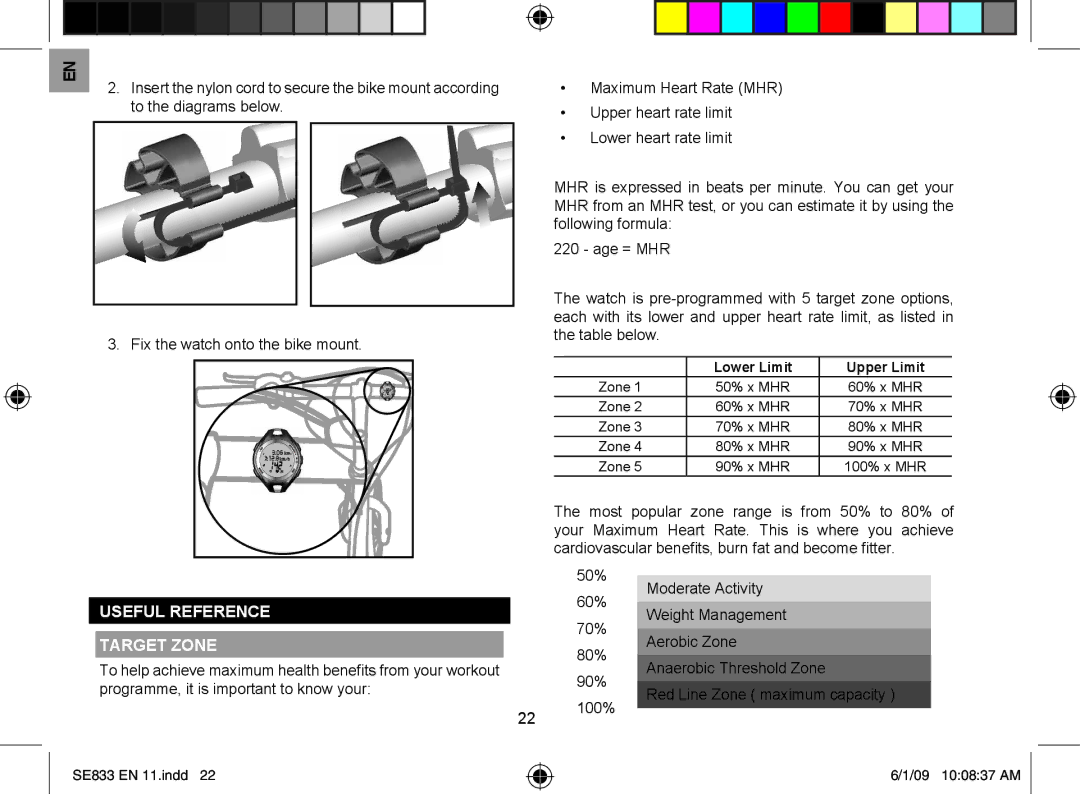
EN | 2. Insert the nylon cord to secure the bike mount according |
| |
| to the diagrams below. |
•Maximum Heart Rate (MHR)
•Upper heart rate limit
•Lower heart rate limit
|
|
|
| MHR is expressed in beats per minute. You can get your | ||
|
|
|
| MHR from an MHR test, or you can estimate it by using the | ||
|
|
|
| following formula: |
|
|
|
|
|
| 220 - age = MHR |
|
|
|
|
|
| The watch is | ||
|
|
|
| each with its lower and upper heart rate limit, as listed in | ||
3. Fix the watch onto the bike mount. |
| the table below. |
|
| ||
|
|
|
| |||
|
|
|
|
|
|
|
|
|
|
|
| Lower Limit | Upper Limit |
|
|
|
| Zone 1 | 50% x MHR | 60% x MHR |
|
|
|
| Zone 2 | 60% x MHR | 70% x MHR |
|
|
|
| Zone 3 | 70% x MHR | 80% x MHR |
|
|
|
| Zone 4 | 80% x MHR | 90% x MHR |
|
|
|
| Zone 5 | 90% x MHR | 100% x MHR |
The most popular zone range is from 50% to 80% of your Maximum Heart Rate. This is where you achieve cardiovascular benefits, burn fat and become fitter.
USEFUL REFERENCE
TARGET ZONE
To help achieve maximum health benefits from your workout programme, it is important to know your:
50%
60%
70%
80%
90%
Moderate Activity Weight Management Aerobic Zone Anaerobic Threshold Zone
Red Line Zone ( maximum capacity )
22
SE833 EN 11.indd 22
100%
6/1/09 10:08:37 AM
